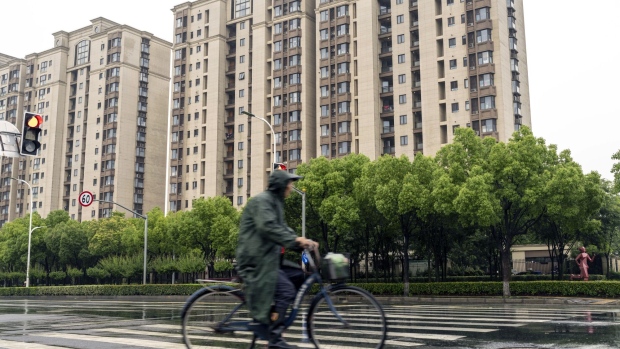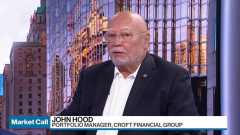Jun 16, 2024
China Home-Price Slump Accelerates Despite More Stimulus
, Bloomberg News

(Bloomberg) -- China’s home prices fell at a faster pace in May, as the country’s most forceful efforts to support the property market took time to revive demand.
New-home prices in 70 cities, excluding state-subsidized housing, slid 0.71% from April, the most since October 2014, National Bureau of Statistics figures showed Monday. Values of existing homes dropped 1%, the sharpest decline since at least 2011 when China started using the current data collection method.
China last month unveiled a broad real estate rescue package to address the biggest cloud over China’s economy, relaxing mortgage rules and encouraging local governments to buy unsold homes. Three of the nation’s biggest cities — Shanghai, Shenzhen and Guangzhou — have since rolled out major easing for homebuyers, slashing downpayment requirements and allowing room for cheaper mortgages. Capital city Beijing has remained unmoved.
But investors and analysts remain skeptical that the measures will be sufficient due to the limited central bank funding revealed so far and the slow progress of existing trial programs in several cities. Housing oversupply has been dragging prices lower, giving people less reason to invest in property.
Weaker-than-expected home prices suggest that the measures haven’t yet improved homebuyers’ confidence, said Raymond Cheng, head of China property research at CGS International Securities Hong Kong. He expects officials to urge local governments to speed up policy implementation.
Price declines also deepened from a year earlier. New-home prices slid 4.3% and used-home values tumbled 7.5%, the statistics bureau said.
A gauge of Chinese developer stocks fell as much as 2.4% in Monday morning trading, heading further into a bear market and down 23% from a mid-May high.
Wall Street economists are predicting new measures and additional funding in Beijing’s bid to shore up the market, after top policymakers urged officials in a cabinet meeting earlier this month to keep an “open mind” over policies to reduce housing inventory and be more “creative and bold” in rolling out supportive measures.
JPMorgan Chase & Co. property analyst Karl Chan expects further easing of restrictions on home purchases. HSBC Holdings Plc economists including Jing Liu predict more measures to destock inventories. New steps are especially likely if the property market doesn’t improve further in the coming months, according to Goldman Sachs Group Inc. economist Hui Shan.
Read BI reaction: Worst China Home-Price Data Since 2011 a Bar to Recovery
Funding for developers has stayed weak since the government drew up a “white list” of property firms that are eligible for loans late last year. A broad gauge of financing for developers, including loans, bonds and proceeds from home sales, continued to shrink heavily, down 24.3% from a year earlier, separate data showed Monday.
Investors are yet to be convinced that the housing slump has reached a turning point for cash-strapped builders. Dexin China Holdings Co. last week became the latest builder to be ordered to liquidate by a Hong Kong court.
Some green shoots emerged in May. Residential sales improved 13.5% from April, the first notable increase this year, according to Bloomberg calculations based on figures for the first five months of the year.
Still, market watchers diverge on the outlook. China’s property sales will likely bottom out in the next two to three months with the help of ongoing policy easing, especially as more progress is made to reduce excess inventory, Wang Tao, UBS Group AG’s chief China economist, wrote in a recent note.
“Sales may improve further in June as support measures trickle out and developers ramp up sales for their interim results,” said Chen Wenjing, a researcher at property agency China Index Holdings. “But how fast the property market can reach a bottom depends very much on homebuyers’ outlook on their income.”
--With assistance from Jing Jin and James Mayger.
(Updated with more price details, analyst comments throughout.)
©2024 Bloomberg L.P.






